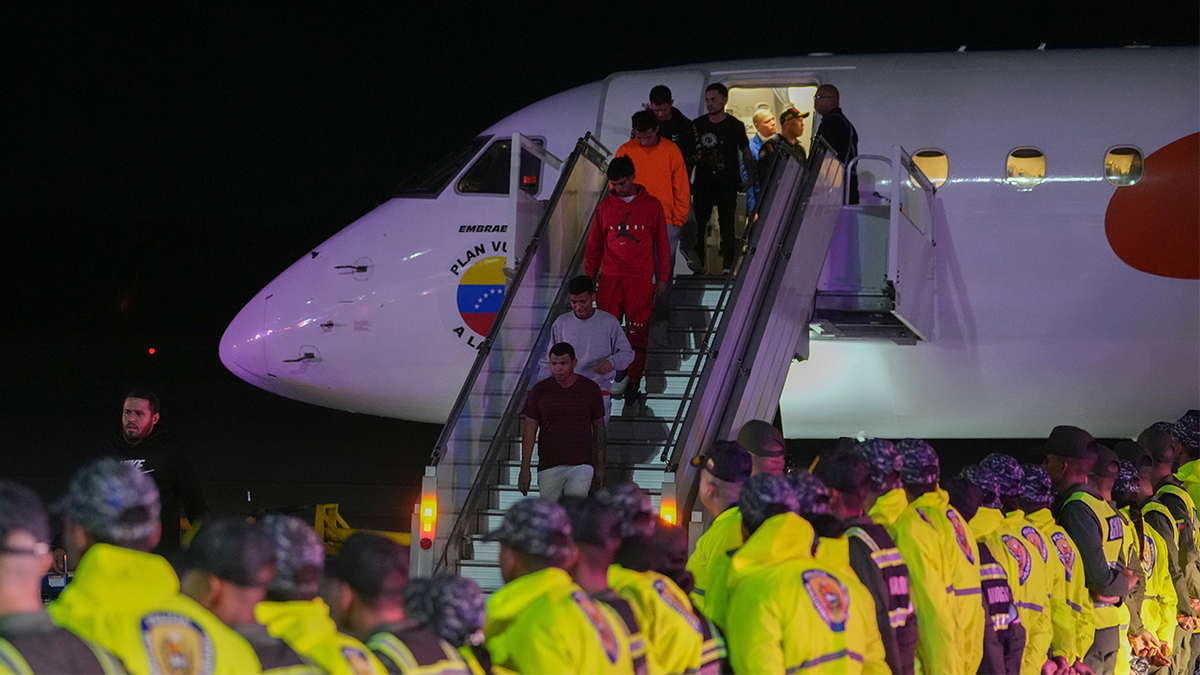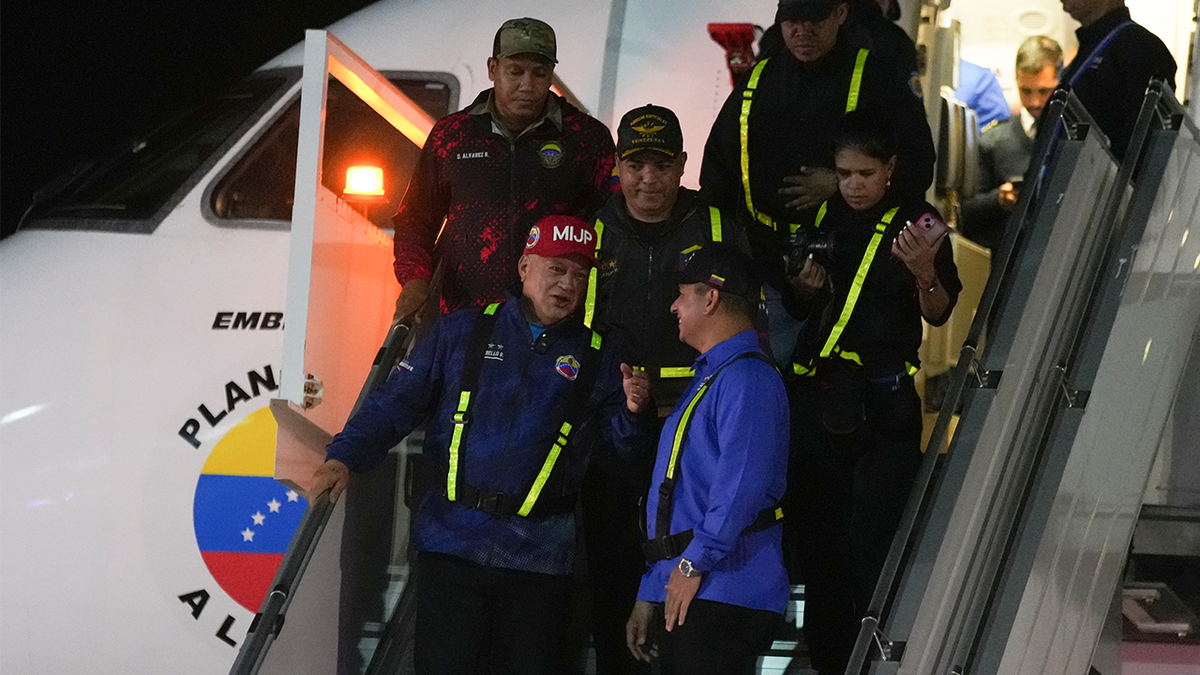INTERNACIONAL
Venezuelan planes sent to US for deportation flights return to country with nearly 200 deportees

Two planes sent by Venezuela returned home Monday with nearly 200 Venezuelans who were in the U.S. illegally as part of President Donald Trump’s mass deportation plan.
The 190 migrants returned to Venezuela signals a possible ease in tensions between the two longtime adversaries and a win for the Trump administration as it seeks to have countries take back their citizens found in the U.S. without authorization.
The Conviasa airline flights arrived in the Venezuelan capital of Caracas from Fort Bliss, a U.S. Army base in El Paso, Texas.
«Two planes of illegal immigrants left El Paso today headed to Venezuela – paid for by the Venezuelans,» Trump envoy Richard Grennell, who oversaw the deportations, wrote on X.
FEDERAL COURT BLOCKS TRUMP ADMIN FROM SENDING DETAINED VENEZUELAN IMMIGRANTS TO GUANTÁNAMO BAY
Two planes sent by Venezuela returned to the country from El Paso, Texas, on Monday with nearly 200 Venezuelans who were in the U.S. illegally. (AP)
Deportation flights from the U.S. to Venezuela had been stopped for years, except for a brief period in October 2023 under the Biden administration.
Large numbers of Venezuelans began arriving at the southern border in 2021 and are still among the nationalities with the most people entering the U.S. illegally, which has made Venezuela’s refusal to accept their return a major hurdle.
Venezuela’s newfound willingness to take back the migrants came after Grennell visited Caracas a few weeks ago.
«This is the world we want, a world of peace, understanding, dialogue and cooperation,» Venezuelan President Nicolás Maduro said.
TRUMP DEPORTING CRIMINAL ALIENS TO GUANTANAMO BAY: MEET THE HARDENED TERRORISTS THEY’LL JOIN

Venezuelans deported from the United States arrive at Simon Bolivar International Airport in Maiquetia, Venezuela, Monday, Feb. 10, 2025. (AP)
The Venezuelan government confirmed the flights earlier on Monday, criticizing in a statement the «ill-intentioned» and «false» narrative surrounding the presence of Tren de Aragua gang members in the U.S. The statement said most Venezuelan migrants are decent and hard-working people and that American officials are attempting to stigmatize the country.
The deportation flights on Monday came days after some illegal aliens were sent to the Guantánamo Bay, Cuba, detention camp, where they are separated from 15 detainees who were already there, including planners in the Sept. 11, 2001, terrorist attack.
A federal judge in New Mexico temporarily blocked the Trump administration from sending three Venezuelan men to Guantánamo Bay on Sunday. Lawyers for the trio argued that their clients «fit the profile of those the administration has prioritized for detention in Guantánamo, i.e. Venezuelan men detained in the El Paso area with (false) charges of connections with the Tren de Aragua gang.»

Venezuelan Interior Minister Diosdado Cabello, front left, walks off a plane that transported deportees from the United States at Simon Bolivar International Airport in Maiquetia, Venezuela, Monday, Feb. 10, 2025. (AP)
CLICK HERE TO GET THE FOX NEWS APP
The flights also came after Secretary of State Marco Rubio reached agreements with El Salvador and Guatemala for those countries to accept their citizens and U.S. deportees of other nationalities.
Trump said after Grennell’s visit that the Venezuelan government had agreed to accept «all Venezuela illegal aliens who were encamped in the U.S., including gang members of Tren de Aragua,» and pay for their flights home. Half a dozen Americans held in Venezuela were released at the time.
The Associated Press contributed to this report.
INTERNACIONAL
Crisis política en Colombia: ahora renuncia el ministro de Defensa y Gustavo Petro pierde a uno de sus colaboradores más leales

El trasfondo de la crisis
-
POLITICA2 días ago
Javier Milei y sus medidas, EN VIVO: Elon Musk volvió a elogiar al Presidente y se declaró «gran fan»
-
ECONOMIA1 día ago
Tarjeteo récord: desde la City alertan que la salida de dólares por turismo creció de manera «impresionante»
-
SOCIEDAD3 días ago
Incendios en la Patagonia: Chubut ofrece 10 millones de pesos para identificar a quienes iniciaron el fuego
-
POLITICA2 días ago
Denuncian que el gobierno de Kicillof gastó 100 millones de pesos en instrumentos para la Policía Bonaerense en medio de la ola de inseguridad
-
CHIMENTOS2 días ago
El testimonio que complica a Jorge Rial, el papá de Morena: «Un hogar con mucha violencia»
-
ECONOMIA3 días ago
Febrero arrancó con fuerte suba en los precios y ya anticipan cómo cerrará la inflación este mes





























